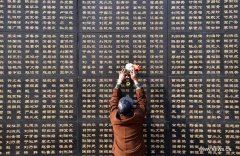Feature: Eid in Sudan stimulates social solidarity and famil
KHARTOUM, July 6 (Xinhua) -- Despite that many traditions and customs in Sudan during Eid al-Fitr are similar to other Arab and Islamic countries, Eid in Sudan is distinguished as a season for more social solidarity and family cohesion.
Despite the economic pressures and their impact on the behavioral patterns, the Sudanese society still maintains its traditions during the Eid as it is a day for communicating with relatives and neighbors, visiting the patients and inspecting the conditions of elderly people.
Some people also visit graves during the Eid, but this habit is presently starting to vanish in Sudan.
Dressing Jalabiya, the national costume, many men in Sudan in the morning of the Eid head to perform the Eid prayers, which is usually performed at open squares in different neighborhoods.
After the prayers, the men move in groups to exchange Eid greetings in all houses near the square where the Eid prayers were performed.
A distinguished habit is that the Sudanese people keep the doors of their homes open during the Eid to any receive visitors.
During the Eid, the families tend to decorate their homes with attractive paints, where sweets and traditionally home-made bakeries, such as al-Naim, al-Quraiba and Betty Four, are presented for the visitors.
"The most important features of Eid in Sudan is that every home is open and everybody visits his relatives moving between Khartoum, Omdurman and Khartoum North to do so.
As for the people in the neighborhood, they visit each other and inspect the conditions of each other on this day," Shiek Ali Musa, Immam of Eid prayer at Al-Azhary Neighborhood, south of the Sudanese capital Khartoum, told Xinhua.
Eid also constitutes an occasion for forgetting disputes and enmity, where everybody rushes to ask for forgiveness and tolerance in realization to purposes of the Sharia which urges for fraternity and renunciation of dispute and enmity.
"This is a great occasion. On the day of Eid, everybody communicates with each other, and those who have a long standing dispute or enmity, seek for reconciliation and forget their differences, which is one of the greatest features of Eid in Sudan," Isam Hassan Ali, a Sudanese university lecturer, told Xinhua.
Additionally, the Sudanese people, in various neighborhoods, are also known for the habit of having group breakfast, usually in public squares where people bring dishes and Broosh (mats).
"The citizens' gathering to have breakfast together at one place is a unique social custom that the Sudanese people have known for ages and they are still adherent to it. It is an evidence of social solidarity," Abdul-Karim Mussa, Information Minister at the Darfur Regional Authority, told Xinhua.
All in all, Eid in Sudan is characterized by features of social solidarity and family cohesion, where the exchange of social visits continue for three days. Many family also travel to entertainment sites during the Eid, especially to capital Khartoum.
Children during the Eid usually have the lion's share, known as Iydiya (a sum of money), given from the families and neighbors, to buy toys or sweets.















